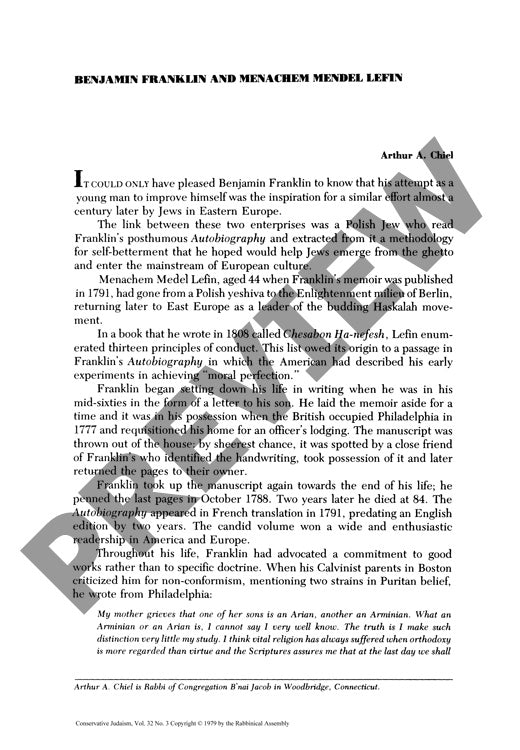Benjamin Franklin and Menachem Mendel Le
Couldn't load pickup availability
A remarkable intellectual bridge between American and Jewish thought emerged when Menachem Mendel Lefin, a Polish-Jewish Enlightenment thinker, adapted Benjamin Franklin's methodology for moral improvement into a Hebrew framework for Eastern European Jewish communities. Franklin's posthumously published *Autobiography* (1791), with its systematic thirteen-virtue approach to achieving moral perfection through weekly accountability, caught the attention of Lefin during his exposure to German Enlightenment thought in Berlin (1780-1784). Despite his traditional Lithuanian yeshiva background, Lefin recognized the universal applicability of Franklin's secular framework, translating and transforming it in his 1808 work *Cheshbon Ha-nefesh* (An Accounting of the Soul). Through historical analysis and comparative textual examination, the research reveals how Lefin successfully merged Franklin's pragmatic behavioral system with Jewish religious ethics and secular humanism. His adaptation gained substantial traction within the Haskalah movement, receiving endorsements from twelve prominent rabbis and inspiring the formation of *chavurot* (fellowships) dedicated to moral excellence. This cross-cultural exchange exemplifies how Franklin's practical American approach to self-improvement transcended religious and cultural boundaries, contributing significantly to Jewish intellectual development and the evolution of modern Hebrew literature while highlighting the broader influence of Enlightenment thought on Jewish modernization efforts.

More Information
-
Physical Description
-
Publication Information
Published 1979
ISBN
-
Publication Credits
Arthur Chiel

